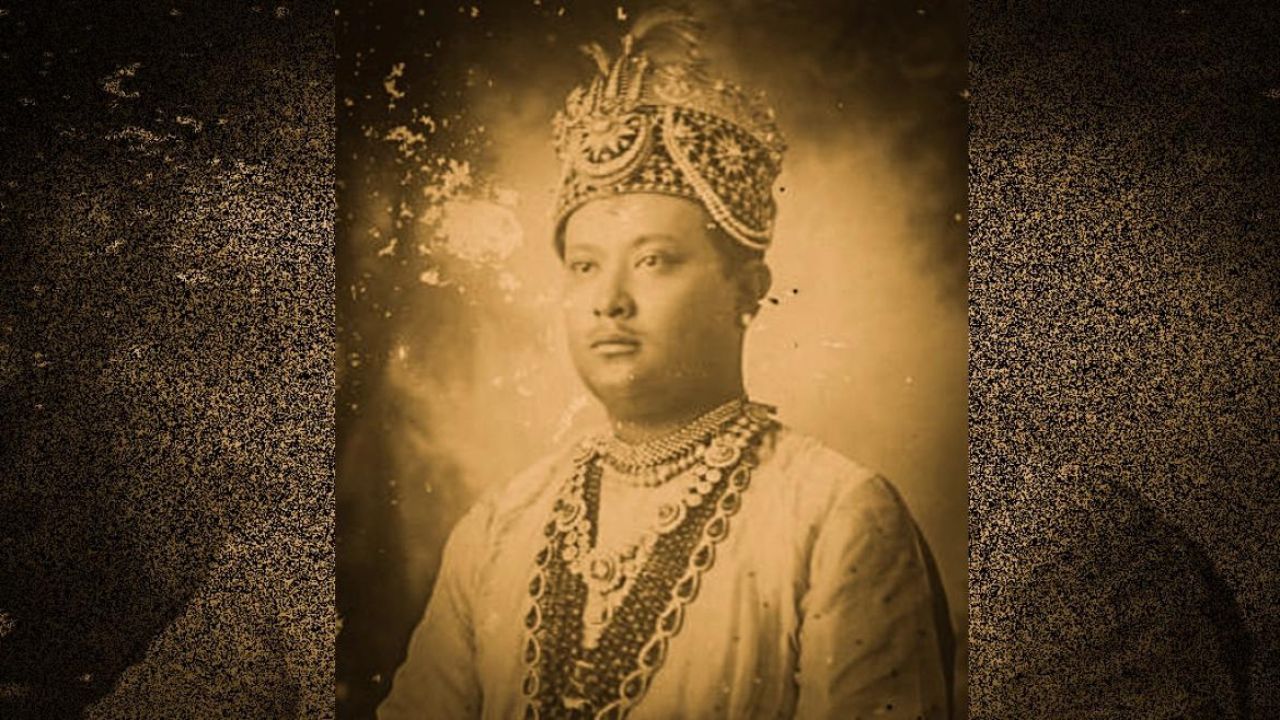Bir Bikram Kishore Debbarma

Bir Bikram Kishore Debbarma (1908-1947) was a prominent freedom fighter and leader from the state of Tripura in northeastern India. He played a significant role in the struggle for India’s independence and worked towards the socio-political development of the Tripura region. Here’s an overview of his life and contributions:
- Early Life: Bir Bikram Kishore Debbarma was born on August 19, 1908, in Tripura, which was then a princely state under British suzerainty. He belonged to the royal family of Tripura.
- Education and Exile: He received his education in Calcutta (now Kolkata) and became involved in the Indian independence movement during his student years. Due to his political activities, he was exiled from Tripura by the ruling Maharaja and spent several years in various parts of India.
- Leadership in the Freedom Movement: Bir Bikram Kishore Debbarma actively participated in the Indian National Congress and played a crucial role in the struggle for India’s independence. He advocated for the rights and freedom of the people of Tripura.
- Return to Tripura: After years in exile, he returned to Tripura and continued his efforts to mobilize the people against British rule. His leadership and dedication to the cause inspired many in the region.
- Mahatma Gandhi’s Influence: Debbarma was deeply influenced by the non-violent philosophy of Mahatma Gandhi. He believed in peaceful means of protest and sought to achieve the region’s socio-political goals through non-violence.
- Post-Independence Role: After India gained independence in 1947, Bir Bikram Kishore Debbarma played a crucial role in the integration of the princely state of Tripura into the Indian Union. He served as the Chief Executive Member of the Tripura Tribal Areas Autonomous District Council.
- Legacy: Bir Bikram Kishore Debbarma’s contributions to the freedom struggle and his leadership in the socio-political development of Tripura have left a lasting legacy in the region. The state government of Tripura has recognized his role in the state’s history and development.
- Commemorations: Various institutions, awards, and landmarks in Tripura are named in his honor, including the Maharaja Bir Bikram College in Agartala, the capital city of Tripura.
Bir Bikram Kishore Debbarma’s life and contributions serve as a source of inspiration for the people of Tripura and all those who value freedom and social justice. His leadership and commitment to the cause of independence and the well-being of the people of Tripura continue to be celebrated in the state’s history and culture.
Specific Content Keywords : Tripura,King of Tripura,Tripura’s First Monarch,Political Leader,Social Reforms,Maharaja of Tripura,Progressive Ruler,Economic Development,Administrative Reforms,Tribal Welfare,Tripura’s Integration with India,Accession to India,Princely State,State’s Modernization,Democratic Governance,Legacy,Tripura’s Cultural Heritage,Education Initiatives,Chakma, Marma, and Tripuri Communities,Tripura State Council.
Related Links

